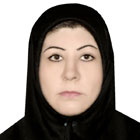Journal of Islamic Studies and Culture, 1(1), pp. 63-70.
Abstract
Intuitional insight or mystical cognition is a different insight from common, concrete and intellectual insights. This kind of insight is not achieved by visionary contemplation but by recitation of God, selfpurification and mystical life. In this insight there is no distance or medium between subject of cognition and its object and they have a sort of unification, unison and incorporation. As a result, knowledgeable consider this insight as direct, immediate and personal. the goal of this insight is God, cosmos’ creatures and generally inner and hidden aspect of world that is nothing except God’s manifestations in the view of mystics.AS our common cognitions have diversity and stages, intuitional insight also has diversity and levels. As our senses are divided to concrete and rational, mystical discovery is divided to superficial discovery and spiritual one. Based on Islamic mystics, the preferable way in knowing God and belief to him is intuitional insight. There are two important criteria for evaluating mystical intuition especially for beginner mystics of intellect and revelation. Indeed, conclusion and brief evaluation of Islamic mystics’ viewpoint is the main subject of this paper.
Full Text: PDF
Bakhtyar, Maryam. (2013). Intuitional Insight in Islamic Mysticism. Journal of Islamic Studies and Culture, 1(1), pp. 63-70.
Holy Quran
Amoli,H.(1366),Jamee AlasrarvaManbaee Alanvar,Correction by Henry Corbin,Tehran:scientific and cultural.
Ashtiyani, J (1365), Commentary on Introduction of Gheisari,Ghom: office of Islamic propagations.
Dashti,M.(1386),In the Shadow of Mysticism, Ghom: Ahlebeit Culture Press.-
Fanayi Eshkevari, M. (1375), Personal Knowledge,Ghom:Educational and Research Institution of Imam Khomeini.
Feyz kashani,M.(Bita),Einalyaghin, Ghom:Bidar.4. Ibn Babooyeh, Mohammad Ibn Ali. (Bita),Man la yehzaro Al faghih, Correction by Husein Aalami,Beirut: Aalami Press Institution.
Forghani, S, Ibn-e- Mohammad. (1379),Masharegh Aldorari: Commentary of Taeiye Ibn-e-Farez,Ghom: Islamic Propagation Office.
Gheisari,D. (Bita),Commentary of Fosos Alhekam,Ghom: Bidadfar Press.
Haeri Yazdi,M.(1384)Philosophic Researches,by Efforts ofAbdullahNaseri, Tehran:Research Institution of Iran Philosophy.
Ibn-e-Arabi, M. (Bita),Alfotohat Almakiyeh, Beirut:dar sader.-
James, W.(1372),Religion and Psychology, Translation byMehdi Ghaeni,Tehran:Islamic Revolution Press.
Javadi Amoli,A.(1385),Mystical life of Imam Ali,Ghom:Asra. ----------------------------. (Bita), Reason for Proving God, Ghom:Asra.
Majlesi,M, B.(1403),Behar Alanvar, Beirut:par Ehya Altorat Alarabi.
Molasadra,S, M. (1340), Kasr-e- Asnam Jaheliyat, Correction by Mohammad Taghi Daneshpazhooh, Tehran: Tehran University.
Molavi, J, M. (1376),Masnavi,Correction by Reinold Nicolson,Tehran: Ghoghnoos.-
Sadeghi, Eshkevari, A. (1386), in the Shadow of Mysticism, Ghom: Ahlebeit Culture Press.
Telemsani, A, S. (1371), Commentary of Manazel Alsayerin,Ghom:Bidar press.-

Maryam Bakhtyar
Faculty member of Islamic Azad University
Ahvaz Branch
Humanities Department
Ahvaz, Iran.
She has composed and compiled 5 books on mysticism and one book on general Persian language.
Conferences
She has participated and presented 17 papers in different international conferences in different countries.
Journals
She has published 13 papers in different international Journals in Humanities.
Browse Journals
Journal Policies
Information
Useful Links
- Call for Papers
- Submit Your Paper
- Publish in Your Native Language
- Subscribe the Journal
- Frequently Asked Questions
- Contact the Executive Editor
- Recommend this Journal to Librarian
- View the Current Issue
- View the Previous Issues
- Recommend this Journal to Friends
- Recommend a Special Issue
- Comment on the Journal
- Publish the Conference Proceedings
Latest Activities
Resources
Visiting Status
| 312 | |
| |
650 |
| |
9201 |
| |
11134 |
| 1384643 | |
| 14 |
